New Marine Biology Course: Living Oceans
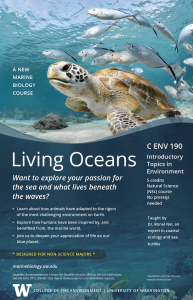
Unveil the wonders of the ocean with a new Marine Biology course taught by Dr Ronel Nel.
What is this course about?
The marine realm dominates our planet’s surface and encompasses a rich tapestry of biodiversity. Life began in the oceans, evolving over eons through nature’s meticulous selection. In this introductory course, we’ll unravel the mysteries of familiar animals with extraordinary adaptations and delve into the extraordinary lives of creatures from known and distant habitats, all shaped by the relentless forces of biology and physics.
Fur seals and sea lions on San Miguel Island: a research experience with NOAA
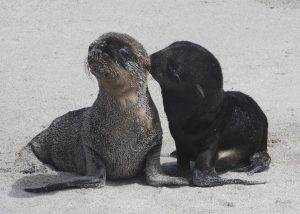
What brought a UW Marine Biology student to California in 2023? Marine mammal research! Ashley Rendon, in her junior year at UW and an Air Force reservist, spent just under a month with NOAA’s Marine Mammal Laboratory on San Miguel Island, the westernmost island of the California Channel Islands.
Finding out about the internship through an email sent by UW Marine Biology adviser Joe Kobayashi, Ashley applied to be a part of the research experience which focuses on population abundance, vital rate estimates, and foraging ecology of California sea lions and northern fur seals.
Invasive species monitoring in Alaska: Nicole takes over the Instagram
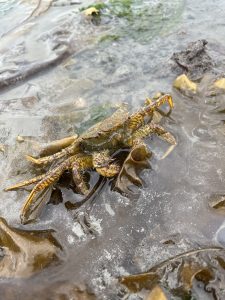
We were joined by Nicole Reynolds for an Instagram takeover where she shared her research experience in Homer, Alaska focused on invasive species monitoring, plus her previous internship opportunities.
I loved sharing my experiences and tips for the takeover! I was able to share some experiences about my NOAA Ernest F. Hollings internship which has been an incredible experience so far.
Real-world applications of marine biology in summer internship
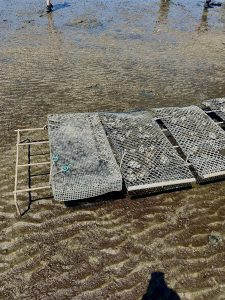
Second year Marine Biology major, Fiona Sheard, joined us for an Instagram takeover about her internship at Rutgers University over the summer. Find out about oyster farms, the Cape Shore Laboratory and more!
I enjoyed sharing my personal thoughts on my internship, my major, and real world applications of Marine Biology! Spending the summer at home in New Jersey, I wanted to have some relevant work experience, and got a fantastic opportunity with Rutgers University.
Southern Resident Killer Whale Research at FHL
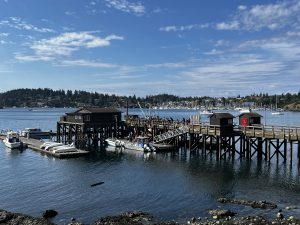
We hear a lot about the UW Marine Biology field station located at Friday Harbor Labs (FHL). FHL provides an immersive field opportunity for our students and others interested in marine science, and is located right on our doorstep in the Salish Sea. Maddie Brooks, recent Marine Biology graduate, took over our Instagram for a day to share her FHL experiences including orca research and fish necropsy.
Read moreTips and tricks for research opportunities
Following her recent research trip to Alaska with NOAA’s Marine Mammal Laboratory, Samantha-Lynn Martinez shares her tips and tricks for getting research opportunities as a UW Marine Biology student.
1) Be vocal about your passions/interests to your instructors/current supervisors, regardless of what field you work in now! You never know, your boss at the local coffee shop you work at could be the bridge between you and your dream project!
A stellar experience: researching Steller sea lions in the Aleutian Islands
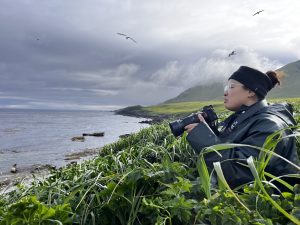
Spending a few weeks this summer with NOAA’s Marine Mammal Laboratory in Alaska’s Aleutian Islands, UW Marine Biology student Samantha-Lynn Martinez was up close and personal with Steller sea lions.
Protected under the Endangered Species Act and Marine Mammal Protection Act, NOAA monitors two populations of Steller sea lions, and Samantha-Lynn’s focus was on the Western Population which are found throughout the Gulf of Alaska, the Aleutian Islands, and into Russia and Japan.
GEODUC Team Receives College of Environment’s Outstanding Commitment to Diversity Award
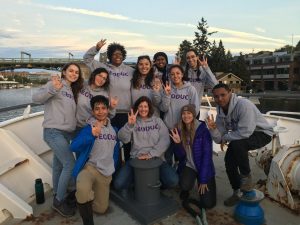
Immersive fieldwork, a bridge program for community college students, a unique research opportunity – these are just some of the ways to describe the GEODUC program, whose team has been awarded the College of the Environment’s Outstanding Commitment to Diversity, Equity, Inclusion, Justice and Accessibility Award.
The GEODUC program – which welcomes transfer students each September into the UW marine geosciences – is led by José Guzmán, (Marine Biology and SAFS), Mikelle Nuwer (Oceanography), Kerry Naish (Marine Biology and SAFS), LuAnne Thompson (Oceanography), and Jane Dolliver (Dean’s Office, College of the Environment).
Sandy beaches and sea turtles: an introduction to Ronel Nel
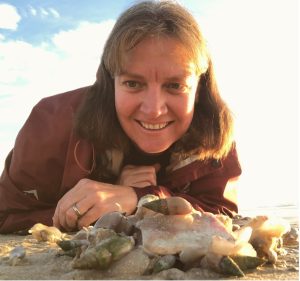
As the newest faculty member to join the UW Marine Biology Program and School of Aquatic and Fishery Sciences, we spoke with Ronel Nel, a beach ecologist and sea turtle conservationist from South Africa.
Tell us a bit about your background
I received my PhD from the University of Cape Town, South Africa, in 2002, and quickly started working with a state conservation agency, Ezemvelo KZN Wildlife.
That’s so fetch! A UW Fieldnotes blog by Leilani Combs
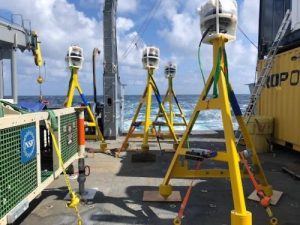
Four hundred and eighty kilometers from the Oregon Coast lies an active submarine volcano known as Axial Seamount, which erupted in 1998, 2011, and again in 2015. It is the most studied underwater volcano in the world, in part, thanks to the Regional Cabled Array (RCA), funded by the National Science Foundation as part of the Ocean Observatories Initiative.
Read more